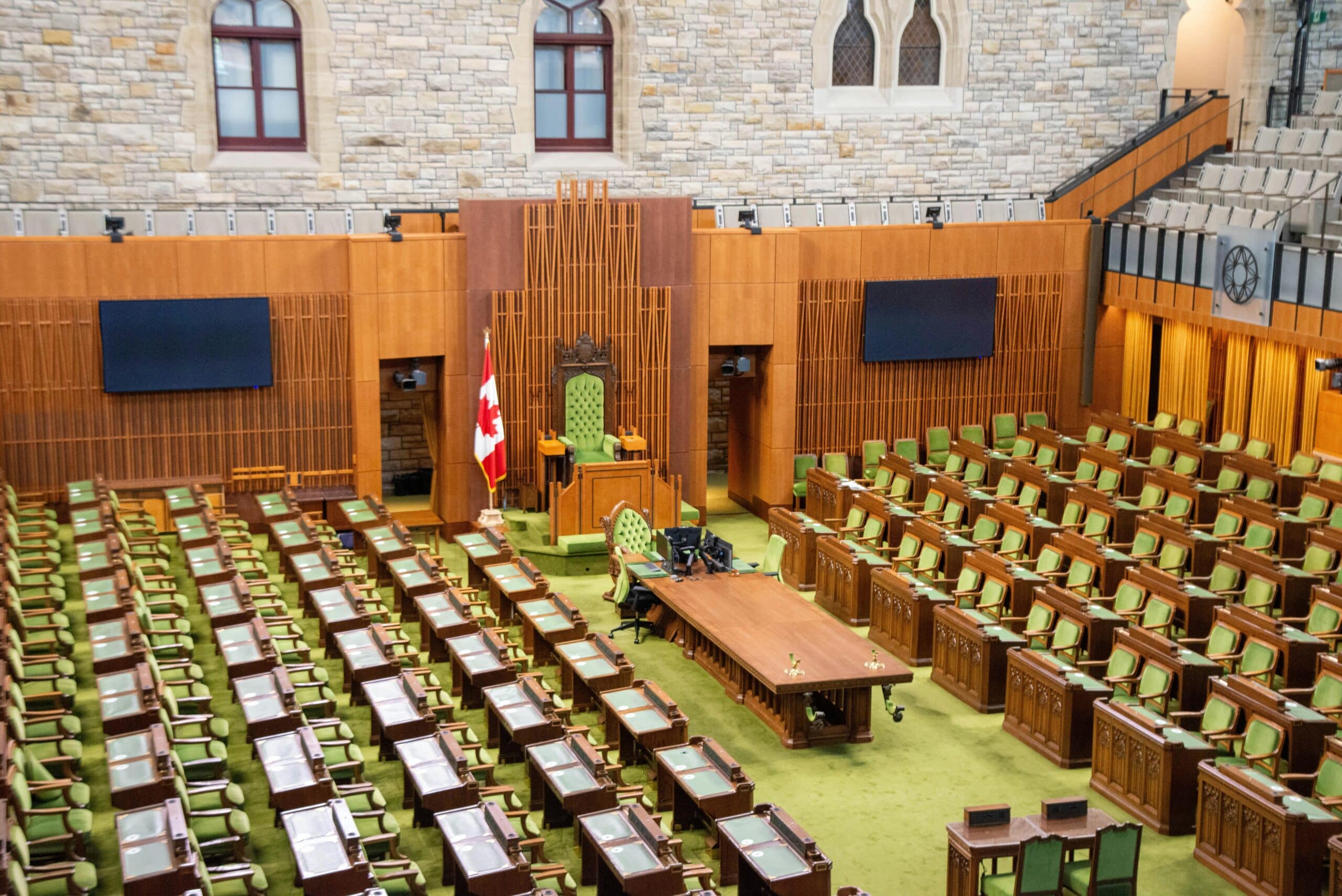The 2024 Federal Budget, presented by Finance Minister Chrystia Freeland on April 16, introduced $52.9 billion in new spending, which the government plans to offset, in part, by increasing taxes for high-income earners through a capital gains tax hike.
The budget announced several promising tax relief measures, including a new Canadian Entrepreneurs’ Tax Incentive and a new carbon tax rebate aimed at small businesses.
Alongside these announcements, the government proposed a number of key changes to Canada’s tax rules which would increase enforcement of the Income Tax Act, while strengthening measures against tax debt avoidance.
Increased Capital Gains Rate along with a higher Lifetime Capital Gains Exemption
This year’s budget included a significant increase to the capital gains inclusion rate, which will go from 50% to 66.67%. Dispositions before this date will still maintain the 50% rate.
It’s important to note that for individuals (other than trusts) only capital gains over $250,000 in the year will be affected by the higher rate, while gains below this threshold will still use the lower 50% inclusion rate.
Those affected by the Employee Stock Option Rules will see similar hikes in the taxable component of their taxable employment benefit from exercising stock options.
The budget included good news for high-income earners eligible for the Lifetime Capital Gains Exemption, which will increase to $1,250,000 in 2025, and subject to future indexation for 2026 and beyond.
Introducing tax support through exemptions and incentives
The 2024 budget included several new tax benefits while extending current incentives and exemptions, such as:
The Canadian Entrepreneurs’ Tax Incentive
Introduced as a new tax measure, the proposed incentive would let those selling qualifying shares use a one-third capital gains inclusion rate, instead of a two-thirds rate, thereby decreasing the amount of taxed capital gains. Those benefiting from the incentive will be able to use it along with the lifetime capital gains exemptions.
The measure will come into effect next year, meaning only shares and transfers made on or after January 1, 2025, will be eligible.
The proposal comes with a $2 million lifetime limit. The limit will be incrementally phased in starting in 2025 through $200,000 portions. It will reach $2 million by January 1, 2034.
The Employee Ownership Trust Tax Exemption
The Employee Ownership Trust (EOT) Exemption introduced significant tax relief for those selling qualifying shares to an EOT. Tax rules setting up this exemption were originally announced in last year’s budget, while the Fall Economic Statement proposed that the first $10 million in capital gains from these transactions would be exempt from tax as long as specific conditions were met.
This year’s budget went into further details on the new measure, explaining that, if a group sold qualifying shares to an EOT, the $10 million exemption must be shared amongst everyone involved. It’s important to note that any capital gains that are exempt under this measure would be subject to a 30% inclusion rate for the purposes of the Alternative Minimum Tax (AMT).
Understanding disqualifying events
Claims can be disqualified within 36 months of a transfer if:
- An EOT loses its status; or
- Less than 50% of the fair market value (FMV) of the qualifying business shares is derived from assets used in an active business at the start of two consecutive years.
If this occurs, the EOT and those who sold the shares will be responsible for repaying any taxes saved as a result of this exemption.
The Mineral Exploration Tax Credit Extension
According to Budget 2024, the eligibility for this credit, which supports those investing in companies exploring for critical minerals, would be extended by a full year. This means the credit will apply to flow-through share agreements dated before April 1, 2025.
Eligible Purpose-Built Rental Housing Tax Incentives and Accelerated Capital Cost Allowance (CCA)
As the government continues to battle an affordable housing crisis throughout the country, the budget focused on measures that would encourage developers to build more rental units.
Through the proposed Eligible Purpose-Built Rental Housing (EPBRH) incentive, those who use third-party financing will be exempt from the Excess Interest and Financing Expenses Limitation (EIFEL) rules, which restrict the amount taxpayers can deduct for interest and financing expenses.
To qualify for this incentive, rental housing must:
- Have at least four private apartment units or 10 private rooms;
- 90% of the rental units must be designated for long-term tenants;
- Interest and financing expenses must be incurred before January 1, 2036.
These exemptions would apply on taxation years on or after October 1, 2023. The budget also introduced an accelerated Capital Cost Allowance (CCA) for new residential rental housing, which would allow eligible parties to deduct a larger percentage of their capital asset costs from their taxable income each year.
The proposed CCA rate is 10% for projects that started construction after April 15, 2024, and before January 1, 2031. To be eligible, properties must be available for rent before January 1, 2036.
Accelerated CCA for Certain Property
Companies looking to invest in long-term growth may benefit from the government’s newest measure that provides immediate expensing for eligible property bought after April 15, 2024, as long as it becomes available for use before January 1, 2027. Property that becomes available in 2027 or 2028 could still benefit from the Accelerated Investment Incentive. This measure would allow for a 100% first-year CCA deduction on the following classes:
- Class 44, such as patents.
- Class 46, such as data network infrastructure equipment.
- Class 50, such as computers and system software.
Canada Carbon Rebate for Small Businesses
Small businesses may benefit from a new carbon rebate that would give back a portion of funds collected from fuel charges through a refundable tax credit. To be eligible, a Canadian Controlled Private Corporation (CCPC) must:
- Have no more than 499 employees throughout the full calendar year that was affected by the fuel charge.
- File a tax return for its 2023 taxation year by July 15, 2024.
Please note that businesses won’t need to apply for this credit, as it will be determined automatically by the Canada Revenue Agency (CRA). The amount received through this rebate will be based on the number of employees multiplied by a specified payment rate given by each province’s Minister of Finance.
Supporting first-time home buyers through an RRSP withdrawal increase
This year’s budget outlined several measures supporting housing accessibility, including a change to the RRSP Home Buyers’ Plan, targeted at first-time buyers. The budget proposed an increase to the amount an eligible home buyer can withdraw from their RRSP without facing tax consequences. The amount will increase from $35,000 to $60,000 for withdrawals made after April 16, 2024.
Repayment schedules were also extended, allowing home buyers to commence repaying the withdrawal five years after the initial year the funds were taken out, a change from the current rule which requires the repayment to commence in the second year following the year of withdrawal. This extension applies to transactions between January 1, 2022, and December 31, 2025.
How this year’s AMT changes affect charitable donations
Last year’s budget introduced significant amendments to Canada’s Alternative Minimum Tax (AMT), a calculation that runs parallel to ordinary income tax, making it harder for high-income earners to use deductions, exemptions, and tax credits to decrease their taxes owed. The amendment affected charitable giving, as donations are claimed as non-refundable tax credits (NRTC).
Last year’s announcement stated that only half of an individual’s NRTC would be permissible for AMT purposes. Budget 2024 will allow individuals to claim 80 percent of their charitable donation tax credits when calculating AMT.
Evolving tax enforcement rules and avoidance measures
The government focused on strengthening the CRA’s information gathering provisions as the 2024 budget proposed a measure that would allow the organization to issue Notices of Non-Compliance to those who failed to provide information to the CRA when requested through an oral or written notice.
Penalties for non-compliance include a fine of $50 per day to a maximum of $25,000. The Notices of Non-Compliance result in an extension of the period during which a notice of assessment can be issued, equivalent to the duration that the notice of non-compliance remains unresolved.
Those affected by these notices can request a review of the notice by the CRA, and then its decision can be appealed to a judge of the Federal Court. If the measure is dismissed, any penalties will be removed.
The government also introduced a measure that would strengthen existing tax debt avoidance planning rules. In addition, these enhanced rules will also be subject to the current tax avoidance penalties. Those found to be in breach of the tax avoidance rules would pay the lesser of:
- 50 percent of the avoidance amount; or
- $100,000, plus any benefits or gains received
The budget’s new proposal also states that those involved in tax debt avoidance schemes would be collectively responsible for the entire amount of the unpaid tax, even if some of it remains with the planner.
Navigating this year’s tax changes
As the budget included several changes to key tax rules, it’s important to review these measures with a trusted financial team. Connect with an experienced team member here or send a general inquiry to info@zeifmans.ca.



